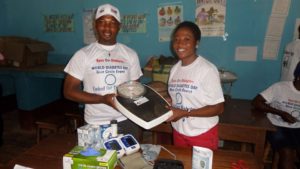I was challenged to make a difference by envisaging to become one of the scientists who will bring solutions to the growing burden of diseases in my community.
Kyeng Mercy Tetuh is an Epidemiologist and a global health advocate passionate about reducing the burden of diseases in Africa. For the past five years, her work has been centered around strengthening country health systems to prevent, detect and respond promptly to public health threats.
A wife and mother of two, Kyeng loves adventure and exploring new places. She describes herself as an unapologetic go-getter who sometimes comes off as being very aggressive.
What led you to pursue a career in health?
Growing up in a community where the sciences and research were male dominated, I was challenged to make a difference by envisaging to become one of the scientists who will bring solutions to the growing burden of diseases in my community. Back then, the most challenging public health threat was HIV/AIDS, I had lost close relatives to the disease given that ARVs were not available to patients. As a teenager, my vision was to become a researcher and solve this problem which led me to pursue a career in health.
How would you describe your career path?
My passion for medical research led me to take an undergraduate degree in Microbiology and Medical Lab Technology, after which I practiced in local laboratories and hospitals in the capacity of Lab scientist and Laboratory director. During my term in a local hospital, as laboratory director, my understanding of the determinants of health was enhanced as I met so many people who only reported to the hospital at terminal stages. Sometimes, on analyzing kidney markers for samples such as creatinine, I would weep as some diabetic patients would only come to the hospital at end stage kidney failure. This got me thinking.
I realized that there was much more that needed to be done at the community level to improve well-being than just at the hospital setting.
I realized that there was much more that needed to be done at the community level to improve well-being than just at the hospital setting. This was when I decided to fully engage in public health and epidemiology. After obtaining a Masters degree, I founded a local initiative called Value Health Africa which has now become an international organization. This initiative has impacted the health of millions of Cameroonians, both online and onsite, and has enabled several vulnerable populations to access care. Through this initiative, I was recruited, by the African Union, to operationalize the Africa Centers for Disease Control Eastern Regional Collaborating Center with its head office in Nairobi, Kenya.
What does a typical workday look like for you?
Putting out targets for the week and daily routines; setting up breakfast, lunch and preparing myself and son for work and school respectively. I remember arriving at my workplace on this faithful day, about to launch into my activities, I received a quitting notification from my house help. It sounds like a joke, huh? Not only this, shortly after, an email comes from the head office for me to act on a document within 24 hours. Sometimes as a woman you are trapped in a catch 22, having to balance between work and family, and thus being able to exhibit such dynamism as a woman makes us even more outstanding.

What experience(s) are you most proud of?
The experience of being able to keep up with my career aspirations while playing the role of a wife and a mother makes me proud as a woman. Also, initiating Value Health Africa, a non-governmental organization, which has impacted several communities in Cameroon and has also been a springboard of growth for several young women is one of the most amazing experiences that will live on. Through this initiative, I was able to meet top world leaders, like President Obama, which was also a turning point for my career growth. Lastly, I am also proud to be one of the pioneer technical experts who supported the operationalization of the Africa CDC Eastern Regional collaborating center.
What do you wish you had done differently?
I would have had all my three kids, as planned, by now as everyday my life gets even busier.
What are some of the biggest challenges you have faced? How did you overcome them? What are some of the lessons learnt?
Fear to fail in trying out new strategies and ideas. I was so scared to make mistakes at the beginning of my ventures in the non-profit sector. In addition, I also accommodated so many naysayers around whom I kept sharing my plans with. At some point, I had to move out of that circle and interact with those who were visionary, aggressive, and didn’t mind failing on their career journey. These positive energies augmented my confidence in setting out for my mission which has eventually yielded so much. A lesson from this; it is difficult to grow higher than the energy within your circle thus always surround yourself with those who exude positive energy.
What is the value of mentorship in your opinion?
Mentoring is a key component for skill acquisition and career growth.
Mentoring is a key component for skill acquisition and career growth. It is a very important form of collaboration between successive generations. Mentorship also provides professional socialization and a strong support system for the younger generation to learn from the older generations’ working strategies while evading some of their failures.
Have you ever been mentored, if so, by whom and has this mentorship played a role in your career advancement?
No. I have never had a mentor. However, I must say I have had remarkable Coaches, such as Yvonne Serakoana, whose session on the “Wheel of life” enabled me to better balance career and family. Presently Dr Miriam Nanyunja, WHO regional adviser for Emergency Risk Management, has also been very helpful in career coaching. I also have spiritual leaders, like Ps Andison Kemeti, who have been supportive as well.

What are some of the opportunities you see for women in health on the African continent?
Women in Africa have a sea of opportunities as the recent wave of gender balance is raising awareness on the role of women in advancing global health. Africa CDC, WHO, and other giant agencies now have policies in place to ensure that gender balance is respected during recruitment. This is therefore a call for women to gain the right skills in order to grab such opportunities.
This is therefore a call for women to gain the right skills in order to grab such opportunities. - Kyeng Mercy Tetuh Click To Tweet
What advice do you have for other women in health?
Let no one tell you how far you should go by defining your limits. Go as far as you can, for the strength to dare and make a difference is embedded in you.

Leave a Reply